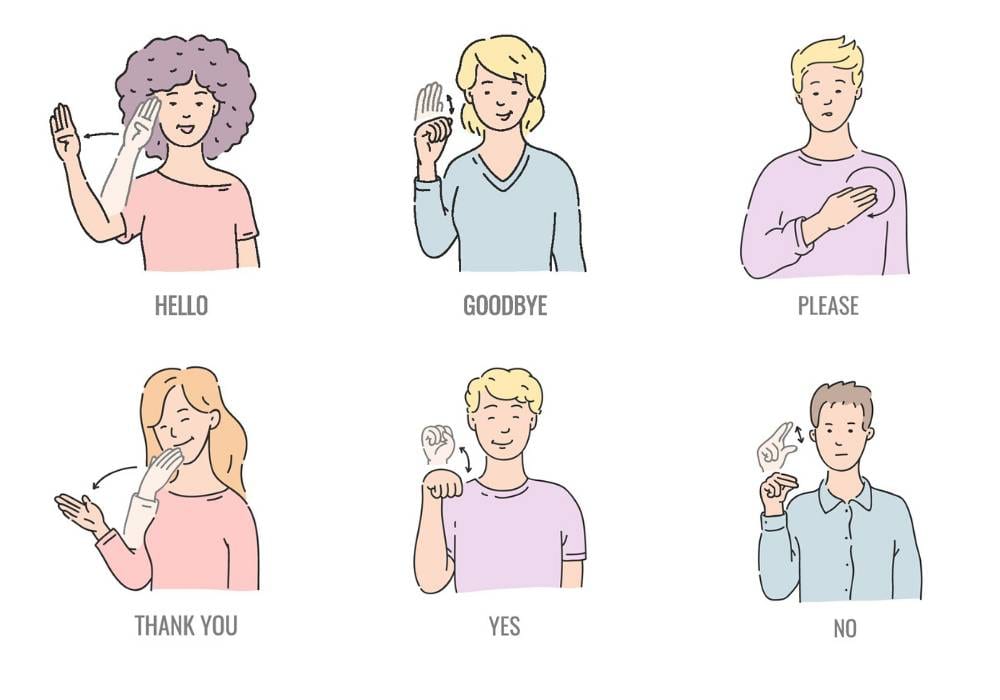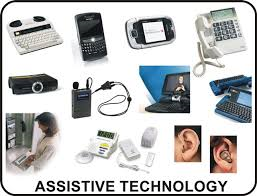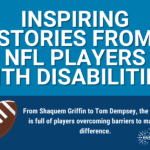
Against All Odds
Employment: Career Exploration
 When young Angel first came to Easterseals in 2015 for employment training he was anxious and open about his goals, the first of which was to pass his drivers exam. He connected quickly with staff and was steadily on his way to acquiring his driver’s permit and achieving other ambitions on his list. Unfortunately, life had other plans for Angel. He began to experience depression and suicidal thoughts on a regular basis. He also found himself the victim of domestic violence in his residence. Because of the open relationship he had with his service specialist at Easterseals he was able to share his struggles and receive guidance and support. Acting quickly, his support staff were able to successfully assist him in finding a new place to live.
When young Angel first came to Easterseals in 2015 for employment training he was anxious and open about his goals, the first of which was to pass his drivers exam. He connected quickly with staff and was steadily on his way to acquiring his driver’s permit and achieving other ambitions on his list. Unfortunately, life had other plans for Angel. He began to experience depression and suicidal thoughts on a regular basis. He also found himself the victim of domestic violence in his residence. Because of the open relationship he had with his service specialist at Easterseals he was able to share his struggles and receive guidance and support. Acting quickly, his support staff were able to successfully assist him in finding a new place to live.
An Uphill Battle
Shortly after moving into a different family member’s home, Angel’s physical health declined. A significant thyroid condition quickly progressed and impacted Angel’s heart, lungs, energy level, and motivation. At Easterseals one afternoon, Angel began to feel very ill and stated “I cannot take it anymore.” Emergency personnel were contacted and Angel was to spend the next month in the hospital for his condition. When finally released, Angel still required oxygen 24 hours per day due to the damage done to his lungs.
Becoming Himself Again
After several weeks of rest at home, Angel happily returned to Easterseals more motivated than ever to work hard, improve his skills, and obtain community employment. He met with his career exploration coordinator to discuss his employment plans and began job sampling soon thereafter. Angel loved being out in the community and getting to meet new people – it had a wonderfully positive impact on his physical and mental health. Angel’s enthusiasm was noticeable and well received. After only 5 weeks of job sampling with Verna’s Flight Line Café in Millville, he was offered a job!
The Future is Looking Bright
Now, after earning his first paycheck from an integrated employment site, Angel is looking forward to his future and developing additional skills in the hospitality industry. Although his mental and physical health conditions initially posed a significant barrier
to employment, Angel’s triumphant spirit paired with a dedicated team of Easterseals employees proved that employment is attainable for anyone with the right supports and a commitment to pursuing their goals.
- Rachel Smith, BA, CESP, Career Exploration Coordinator | Millville
Last updated: February 7, 2020
Our blog
-
Embracing Inclusivity: A Guide to Better Communication with the Deaf and Hard of Hearing Community
Friday, September 1, 2023, 8:24 AMEmbracing Inclusivity: A Guide to Better Communication with the Deaf and Hard of Hearing Community
Friday, September 1, 2023, 8:24 AM
In today’s diverse and interconnected world, promoting inclusivity is not just a buzzword but …
Read this PostIn today’s diverse and interconnected world, promoting inclusivity is not just a buzzword but a vital aspect of fostering understanding, empathy, and unity. This month, September, is Deaf Awareness Month, and we want to discuss breaking down the communication barriers the Deaf and Hard-of-Hearing (D/HoH) community faces.
At Easterseals New Jersey, our Career Pathways Connections program provides opportunities for individuals in the D/HoH community to enter the workforce and obtain sustainable employment. We help our participants identify their skill sets to find where they want to take their career goals. We also work to shed light on effective strategies companies can utilize to enhance their accessibility in the workplace. Today, we want to spread these effective strategies with YOU, not only to use in your workplace but in your communities.
Educate Yourself
Understanding Deaf culture, history, and the challenges faced by D/HoH individuals is essential. You can better navigate conversations and interactions by educating yourself on communication methods (such as sign language) and assistive technologies. You can start by looking here to find an easy mobile app: ihttps://geekflare.com/sign-language-learning-apps/
Learn Basic Sign Language

While learning a new language may seem daunting, picking up basic sign language can go a long way. Familiarize yourself with common signs, the finger-spelling alphabet, and simple phrases. This effort shows your willingness to bridge the communication gap. A resource that can help with this is: https://www.educationalappstore.com/best-apps/best-apps-for-learning-sign-language
Maintain Eye Contact and Facial Expressions
When engaging in a conversation, maintaining eye contact and using facial expressions can help convey your emotions and intentions more effectively. This visual communication is essential for building a strong connection.
Use Clear and Simple Language
Using clear and straightforward language is crucial when communicating in writing or speech. Avoid jargon, complicated vocabulary, or unnecessary slang. This approach benefits not only D/HoH individuals but also promotes effective communication with everyone.
Respect Communication Preferences
It’s important to ask D/HoH individuals about their preferred communication method. Some might prefer sign language, while others may rely on lip reading, writing, or technology-assisted methods. Respecting their choice demonstrates your commitment to effective interaction.
Make Use of Technology

Modern technology offers a variety of tools that facilitate communication with D/HoH individuals. Text messaging, video calls with captioning, and instant messaging apps are just a few examples. Utilizing these platforms helps bridge communication gaps and promotes inclusivity. You can check out some of the tools here:https://www.vocovision.com/blog/assistive-technology-deaf-hard-of-hearing/
Provide Accommodations
Ensure accommodations are in place in various settings, such as workplaces, events, and educational institutions. This could include sign language interpreters, video captioning services, and accessible materials.
Avoid Patronizing Behavior
Treating D/HoH individuals respectfully means treating them as equals, not as people needing pity or special treatment. Avoid shouting, speaking unnaturally slow, or over-exaggerating your lip movements. These actions can be condescending and counterproductive.
Foster an Inclusive Environment
Inclusivity extends beyond individual interactions. Advocate for Deaf-friendly policies and practices in your community. Encourage using sign language interpreters at public events, captioned content in media, and accessible facilities.
Listen and Learn
Engage in conversations with D/HoH individuals to learn about their experiences, challenges, and perspectives. By actively listening and seeking to understand, you contribute to a more inclusive society.
Being more inclusive of Deaf and Hard of Hearing individuals requires a combination of empathy, education, and effort. By taking the time to learn about Deaf culture and communication methods, as well as respecting their preferences and using available technology, you can play an essential role in breaking down communication barriers and creating a more inclusive world for everyone. Remember, inclusivity benefits us all and strengthens the fabric of our diverse society. If you or anyone you know is a part of the D/HoH population and is looking for help entering the workforce and obtaining sustainable employment, please contact us at 855.215.4541 or go to eastersealsnj.org.
The post Embracing Inclusivity: A Guide to Better Communication with the Deaf and Hard of Hearing Community appeared first on Opportunity Outreach Newsletter.
-
Embrace the Great Outdoors: Exploring Outdoor Accessibility in New Jersey this Summer
Tuesday, August 1, 2023, 3:21 PMEmbrace the Great Outdoors: Exploring Outdoor Accessibility in New Jersey this Summer
Tuesday, August 1, 2023, 3:21 PM
With summer in full swing, it’s the perfect time to venture out and embrace New Jersey’s…
Read this Post
With summer in full swing, it’s the perfect time to venture out and embrace New Jersey’s natural beauty. This picturesque state is not only known for its cities and rich history but also boasts outdoor spaces catering to people of all abilities. In this blog, we at Easterseals NJ explore outdoor accessibility options in New Jersey, ensuring everyone can experience the joy of nature this summer.

Accessible Beaches
New Jersey’s coastline has pristine beaches, and many offer excellent accessibility options for individuals with disabilities. Some beaches have wheelchair-accessible boardwalks and beach mats that lead right to the water’s edge. This makes it possible for individuals using mobility aids to enjoy the sand and surf. Popular accessible beaches in New Jersey include Island Beach State Park, Wildwood Beach, and Seven Presidents Oceanfront Park.
Inclusive Trails and Parks
When it comes to outdoor recreation, there are a plethora of parks and trails designed to be accommodating. County and state parks often feature accessible picnic areas, restrooms, and paved pathways suitable for wheelchair users and those with limited mobility. Some notable parks to explore are Liberty State Park and Kittatinny Valley State Park. And don’t miss Duke Farms, which offers over 18 miles of accessible trails, ponds, and gardens.
Botanical Gardens
New Jersey is home to some of the most stunning botanical gardens in the country. These oases of natural beauty often offer accessible pathways, sensory gardens, and tranquil settings. The New Jersey Botanical Garden at Skylands and the Grounds For Sculpture are two examples of places where you can immerse yourself in the beauty of nature while enjoying accessible surroundings.
Accessible Camping
For those who wish to extend their outdoor experience, New Jersey has campgrounds equipped with accessible facilities. Many campgrounds provide accessible cabins and restrooms, making camping a viable option for people with disabilities. Worthington State Forest and Brendan T. Byrne State Forest are among the state parks that offer accessible camping opportunities.

Adaptive Sports and Recreation
For those seeking a more active experience, New Jersey offers a range of adaptive sports and recreational activities. Organizations such as the Adaptive Recreation Services at the Ocean County Parks provide opportunities for individuals with disabilities to participate in adaptive sports like kayaking, cycling, and fishing. These programs foster inclusivity and ensure everyone can enjoy outdoor adventure thrills.
This summer, don’t let accessibility concerns hold you back from exploring the great outdoors in New Jersey. The state’s commitment to inclusivity ensures that individuals of all abilities can enjoy the breathtaking beaches, parks, trails, and recreational activities it has to offer. Whether you prefer a leisurely stroll in a botanical garden, a refreshing swim in the ocean, or a thrilling adventure on a bike, New Jersey has something to suit everyone’s interests.
So, pack your bags, invite your friends and family, and set out on a memorable outdoor adventure this summer. Embrace the beauty of New Jersey’s natural landscapes and create lasting memories as you experience the joys of outdoor accessibility firsthand. Happy exploring!
For more information about programs throughout NJ and advocating for accessibility and inclusion, please visit eastersealsnj.org.
The post Embrace the Great Outdoors: Exploring Outdoor Accessibility in New Jersey this Summer appeared first on Opportunity Outreach Newsletter.
-
How A Child With Down Syndrome Can Qualify For Social Security Disability
Friday, May 12, 2023, 9:53 AMHow A Child With Down Syndrome Can Qualify For Social Security Disability
Friday, May 12, 2023, 9:53 AM
Written by: Elizabeth Van Arsdall Parents who have a child born with Down Syndrome and are having tr…
Read this Post
Written by: Elizabeth Van Arsdall
Parents who have a child born with Down Syndrome and are having trouble making ends meet because of the additional expenses related to their child’s illness can apply for Social Security disability benefits for their child. The Social Security Administration (SSA) pays Supplemental Security Income (SSI), a type of disability benefit, to the parents of children with serious medical conditions. The money from SSI can be used to pay for any of the child’s living or medical expenses, but the parents must keep records showing that the money is spent on the child’s expenses.
Types Of Down Syndrome
Children born with Down Syndrome have either Trisomy 21 Down Syndrome or Mosaic Down Syndrome. Trisomy 21 is the more common type of Down Syndrome. Children born with Trisomy 21 have 3 copies of the 21 chromosomes instead of 2. Children born with Mosaic Down Syndrome are born with some cells with the correct number of chromosomes and others without. Because of that, children with Mosaic Down Syndrome typically have less severe symptoms than children with Trisomy 21.
SSI Benefits For Down Syndrome
In most cases, children born with Trisomy 21 automatically qualify for SSI. This is because non-Mosaic Down syndrome (chromosome 21 trisomy or chromosome 21 translocation) has its own listing in the SSA’s Blue Book. However, parents will still need to submit at least one of these reports with the application for disability benefits:
- A laboratory report of karyotype analysis signed by a doctor.
- A laboratory report of karyotype analysis not signed by a doctor with a statement by a physician that the child has Down Syndrome.
- A doctor’s report indicating the child has 21 trisomy or chromosome 21 translocation consistent with a prior karyotype analysis, with the distinctive physical features of Down syndrome.
- A doctor’s report indicating that the child has Down syndrome and has symptoms of Down Syndrome, including the distinctive physical features of Down syndrome. Parents should also include evidence indicating the child has an intellectual disability related to Trisomy 21.
Parents should also submit all of the child’s medical records and a letter of diagnosis with the application. The parents of children with Mosaic Down Syndrome can apply for SSI for their child, but the application process is a little different. For a child with Mosaic Down Syndrome to be approved for disability benefits, the parents need to submit medical records showing that the child meets the requirements in the SSA’s Blue Book for one of the conditions associated with Mosaic Down Syndrome like:
- congenital heart disease
- sleep-related breathing disorders, such as obstructive sleep apnea
- hearing loss, such as that caused by recurrent ear infections
- intellectual disability or low IQ
- thyroid disorders
Including medical documentation is the best way to improve the chances that the child’s application will be approved on the first try.
Financial Requirements For Social Security Disability
SSI was created to help parents struggling financially to care for a special needs child. As such, the SSA has set an income cap on the program as a qualification measure to make sure that families who really need financial assistance from SSI are able to get it. Parents need to submit either a W-2 or a Federal tax return for each adult in the household that works full-time to show that the total household income falls below the SSI asset limit cap before the child can be approved.
Starting A Claim For Disability Benefits For A Child
Parents or guardians of children with Down Syndrome can start an application for disability benefits for the child on the SSA’s website or apply in person at their local Social Security office.
Sources:
https://www.ssa.gov/ssi/text-child-ussi.htm
https://www.cdc.gov/ncbddd/birthdefects/downsyndrome.html
https://www.ssa.gov/disability/professionals/bluebook/110.00-MultipleBody-Childhood.htm#110_06
https://www.disability-benefits-help.org/disability-tips/letter-of-support
https://www.disability-benefits-help.org/faq/assets-calculation-ssi
https://www.ssa.gov/disability/professionals/bluebook/ChildhoodListings.htm
https://www.disability-benefits-help.org/social-security-disability-locations
The post How A Child With Down Syndrome Can Qualify For Social Security Disability appeared first on Opportunity Outreach Newsletter.
-
MLB Players With Disabilities Conquered the Big Leagues | EastersealsNJ
Thursday, April 6, 2023, 3:38 PMMLB Players With Disabilities Conquered the Big Leagues | EastersealsNJ
Thursday, April 6, 2023, 3:38 PM
March 30th marked the opening day of Major League Baseball. So that’s right… Baseball is…
Read this Post
March 30th marked the opening day of Major League Baseball. So that’s right… Baseball is in full swing!
We thought there was no time better to take a trip down memory lane and showcase some MLB stars with disabilities who didn’t let anything stand in the way of their dreams. Get inspired by uplifting
stories of those who defied all odds and overcame obstacles to make it big on their terms!Tarik El-Abour
Tarik El-Abour is the first professional baseball player diagnosed with Autism. At age 10, he realized baseball was his passion, and he would do anything to play. He was always the first on the field and the last to leave. After many years of practicing, Tarik was contacted by former Kansas City Royals right fielder Reggie Sanders. The Royals agreed to let Tarik join their batting practice. After seeing how easily Tarik fit in with the players, Sanders approached general manager Dayton Moore to offer Tarik a minor league contract. It was right then and there that Tarik El-Abour knew his dream had come true.
Jim Abbott

Abbott was a true trailblazer; he built himself up despite being told all his life that playing baseball was nearly impossible because he was born without a right hand. Jim Abbott had an unrelenting spirit and sheer determination. He quickly became one of the most celebrated athletes in major league history to have a disability. His crowning achievement came when he pitched a no-hitter in 1993 for the New York Yankees! He proved anything is achievable if you set your mind to it.
Curtis Pride
Born Deaf in 1968, Curtis Pride’s dreams were not silenced. Pride broke boundaries as he went on to play in the major leagues for 11 seasons. Pride was a multi-sport athlete with a heavy love for baseball. Communicating with signals allowed those who were Deaf or Hard of Hearing to hardly notice a difference. Pride’s best season was in 1996 as a member of the Detroit Tigers when he received a career high of 301 plate appearances. Pride will always be an inspiration that cannot be overlooked!
Chad Bentz
Chad Bentz was born with one hand, similar to the aforementioned Jim Abbott. Interestingly
enough, Abbott became Bentz’s mentor. A native Alaskan, Bentz also had to overcome geographical obstacles to become a major league pitcher– he’s one of three Alaskans to ever play in the big leagues. Making his MLB debut in 2004, Bentz pitched in 40 Major League Baseball games, displaying that being born with only one hand only made him stronger.Freddy Sanchez
Freddy Sanchez never thought he could do what he loved after being born with a club right foot and a left foot that was severely pigeon-toed. On only his second day of life, he already had casts on both legs, which was the first of many medical attempts to help Sanchez. “Can’t was not in our vocabulary as a family,” stated Sanchez’s mother. Sanchez went on to have a successful career in the Major League, winning a batting title in just his second season in 2006 and becoming a three-time All-Star. Freddy Sanchez was not letting anything get in his way.
Mordecai Brown

Known for his famous nickname “Three-Finger,” Mordecai Brown was the ace right-hander of the Chicago Cubs teams. His nickname was drawn from a farming accident that left him with only three fingers on one hand. This made Brown stand out because he could pitch a baseball like no one else by throwing the ball with a unique and forceful curve that no one could replicate. Brown would go on to win 239 games in the major league, forever being remembered as a force to be reckoned with.
Jim Eisenreich
Jim Eisenreich had an astonishing 15-year career in the Major Leagues. He was diagnosed with Tourette Syndrome at an early age, but he did not let that stop him from playing the sport he loved. Instead, he became an inspiration to others. Eisenreich and his wife founded the Eisenreich Foundation for Children with Tourette’s Syndrome, letting him travel the world to tell his story. His baseball career had lots of highs, such as hitting a .290 in over 1,400 games played! He continues to be an inspiration to all.
David Freese
Known for his hitting heroics in Game 6 of the 2011 World Series, David Freese was battling something no one would have known by just looking at him. The veteran infielder had depression, something he’d been living with his entire life. Freese was not one to shy away from help. He’s been very vocal about his depression, and the counseling and support he’s received from family and friends led him to profound improvements. He continued to play the sport he loved and, in 2019, had one of the best seasons of his career before retiring. David Freese is just one of many battling with mental illness and shows that it is never too late to ask for help.
These are just a handful of MLB players who have been able to do amazing things even with a disability. They’re an inspiration to everyone and show that anything is possible!
The post MLB Players With Disabilities Conquered the Big Leagues | EastersealsNJ appeared first on Opportunity Outreach Newsletter.
-
10 NFL Players Who Overcame Barriers to Their Disabilities
Wednesday, February 1, 2023, 11:41 AM
From Shaquem Griffin to Tom Dempsey, the league is full of inspiring stories. With the big Super Bow…
Read this Post
From Shaquem Griffin to Tom Dempsey, the league is full of inspiring stories.
With the big Super Bowl game coming up, the spotlight is on the NFL. While we have a lot of football fans here at Easterseals NJ, we’re the biggest fans of players making a difference in the disability community. Many of these players created foundations and nonprofits to help others. Below are just a handful of current and former players that showcase that anything is possible.
Keith O’Neill
The former Colts and Cowboys linebacker has been vocal about his struggle with anxiety, depression, and bipolar disorder. O’Neill started the 4th and Forever Foundation to help others struggling with mental health.
Brandon Marshall
Marshall, a former NFL linebacker, announced he had borderline personality disorder in 2011. He’s made it his mission to spread awareness and destigmatize BPD. He even started his own nonprofit– Project 375– with the goal of “unlocking human potential through conversation, education, & inspiration.”
Shaquem Griffin

Griffin is a former NFL linebacker (and twin brother of Jacksonville Jaguars cornerback Shaquill Griffin) born with Amniotic Band Syndrome. ABS affected Griffin’s right hand, causing it to become underdeveloped. Griffin eventually underwent surgical amputation to have the hand removed. Griffin has worked with the Challenged Athletes Foundation, a sports program for those with physical disabilities.
Tom Dempsey
The late Tom Dempsey was a kicker for the New Orleans Saints. Dempsey’s kicking foot was deformed; he wore a special boot while playing. He famously made a record-setting field goal against the Detroit Lions in 1970. The kick resulted in the “Tom Dempsey Rule” which now requires all players to use shoes similar to the NFL standard. Interestingly enough, Dempsey’s custom shoe was lighter than other shoes.
Brent Boyd
Often called the father of concussion awareness, Boyd is a former NFL offensive guard for the Minnesota Vikings. He founded the advocacy group, Dignity After Football, and famously testified in front of congress regarding the NFL’s disability plan.
Rocky Bleier
Bleier was a former halfback for the Pittsburgh Steelers. He sustained severe injuries to his right foot and leg during the Vietnam War. He wrote a book about his experience, Fighting Back: The Rocky Bleier Story, discussing his injuries and his time in the NFL.
Tedy Bruschi

Bruschi, a former linebacker for the NFL and current senior advisor to the head coach at the University of Arizona, suffered a stroke in 2005. After sitting out a season to recover, he was able to continue playing for several more seasons. Shortly after his stroke, he started a non-profit organization, Tedy’s Team, to raise awareness for stroke and heart disease victims while supporting survivors.
Samari Rolle
Rolle, a former cornerback for the Oilers and Ravens, has been very open about living with epilepsy. While he eventually retired, citing his illness as well as injuries sustained on the field, he’s currently the assistant football coach at a high school in Florida.
Joe Barksdale
Barksdale is a former offensive tackle in the NFL, but his impressive resume also includes singer-songwriter and stand-up comedian. Last year, Barksdale publicly shared his autism diagnosis. He mentioned in an interview with the Today Show that the diagnosis made him feel comfortable with who he is.
Eric LeGrand
LeGrand signed a symbolic contract with the Tampa Bay Buccaneers in 2012, but he’s never played in the NFL. This college footballer fractured two of his vertebrae in a game against Army, leaving him paralyzed from the neck down. Since then, LeGrand has created a platform to speak out about those living with spinal cord injuries. He partnered with the Christopher & Dana Reeve Foundation to create the nonprofit Team LeGrand. He’s also an author, sports analyst, and motivational speaker.
Of course, these are just a handful of the many NFL players with disabilities who are making a difference in the world. Who are some of your favorite players and nonprofits?
The post 10 NFL Players Who Overcame Barriers to Their Disabilities appeared first on Opportunity Outreach Newsletter.
Let's Keep in Touch
Don't miss out on exciting news, helpful resources, and impactful stories delivered to your inbox each month.
Join Today